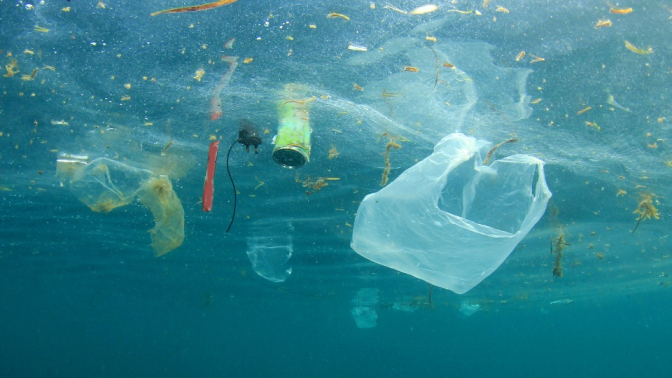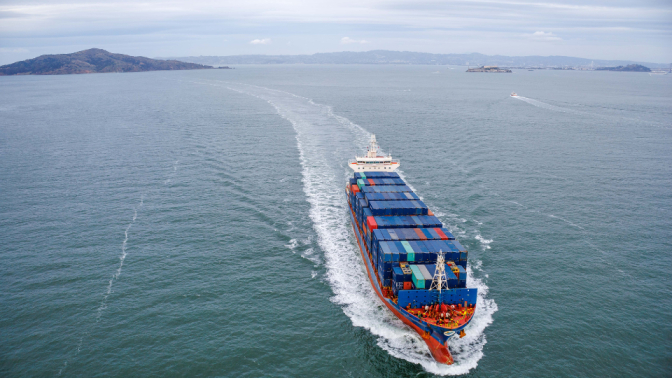The era of environmental accountability is upon us. It’s no longer enough to do the right thing or say we do, we need strong processes to measure our efforts and guide our actions. Shipping’s decarbonization journey is just the start of what is to come as we embrace the full concept of sustainability, as laid out in the United Nations Sustainable Development goals.
The appropriate data collection and analysis of greenhouse gas emissions and other environmental impacts in Shipping can provide the blueprint for meeting other sustainability goals. And digitalization combined with data management is an excellent compass, showing the industry how to navigate the journey to more sustainable operations.
Sustainable Development is development that meets the needs of the present without compromising the ability of future generations to meet their own needs.
Sustainable Development Goals in Shipping
In Shipping, we can directly connect to many of the Sustainable Development Goals, including
- Goal 3: Good health and well-being
- Goal 12: responsible consumption and production
- Goal 13: climate action
- Goal 14: management of life below water.
These Goals encompass SOx and NOx emissions, the spread of invasive species and pathogens via ballast water or hull fouling, disturbance to natural animal behaviors due to underwater noise, and harm to wildlife and ecosystems through the discharge of waste, oil, and chemicals.
All UN Member States adopted the Goals in 2015 as part of a proposed 15-year agenda. Just as the climate action goals set out by the IMO and other shipping stakeholders call for accelerated action, so have world leaders called for a decade of action on sustainable development. They have pledged to mobilize financing, enhance national implementation and strengthen institutions to help achieve the Goals by the target date of 2030.
Earth Overshoot Day
If there’s any doubt about the need for accelerated action, let’s consider Earth Overshoot Day, which the Global Footprint Network calculates. Overshoot Day is the day when humanity used all the biological resources that Earth takes a year to regenerate. In 2022, Earth Overshoot Day fell on July 28, and this date has been coming earlier and earlier each year, proving that we are still failing to meet the ambitious climate goals set by our world leaders.
The persistence of overshoot for over half a century has led to a huge decline in biodiversity, excess greenhouse gases in the atmosphere, and heightened competition for food and energy. We see the impact through unusual heat waves, forest fires, droughts, floods, and human suffering. More than three billion people now live in countries that produce less food than they consume.
According to the Global Footprint Network, to renew everything humanity currently demands from nature would take the biocapacity of 1.75 Earths. Yet, if we can delay Earth Overshoot Day by six days every year, we will be below one planet before 2050.
As the Network says, there are plenty of economically viable possibilities to reverse overshoot. These ventures are also more likely to grow in value than assets which contribute to overshoot as sentiment around the green economy shifts from risk to opportunity.
Put another way, ‘companies should no longer worry that they might be unprepared for future climate regulation, such as a carbon tax. They should be scared of missing out on the economic growth that the energy transition will bring about. And shipping is no exception.
Shipping and climate action

The action we can take now will grow in value over time, and Shipping has a vital role to play. This is not just about Shipping’s carbon emissions but also the environmental impact of maritime transport and ocean activities on the marine world. This requires us to be accountable for our actions, our impact, and the steps we take to drive positive change, whether big or small – and at the heart of real accountability, whether for a vessel, a fleet, or other marine operations, is good data.
The Maritime isn’t just starting out
Shipping has many sustainability initiatives in place, and for an industry sometimes criticized for lack of action, it can help today’s debate in a historical context.
This year marks five decades of the IMO’s London Convention, adopted in 1972 to protect the oceans from dumping waste. The Convention was updated in 1996 by the London Protocol, a comprehensive stand-alone global agreement.
Global Energy Efficiency Measures
The IMO adopted the first set of mandatory measures to improve ships’ energy efficiency in 2011. It has taken further action over the past decade, including mandatory measures to reduce greenhouse gas emissions under the pollution prevention treaty (MARPOL), including:
- Energy Efficiency Design Index (EEDI) for new ships
- Ship Energy Efficiency Management Plan (SEEMP)
- Short-term goal-based carbon intensity reduction requirements, setting out technical and operational energy efficiency measures for ships (EEXI and CII).
- IMO DCS and EU MRV
Preventing Maritime Pollution
Measures introduced by the IMO have helped ensure that oil tankers are safely built and operated. Operational pollution, such as from routine tank cleaning operations, has also been cut.
The operational and construction regulations introduced in MARPOL, which entered into force in 1983, have been successful. Statistics from reputable industry and independent bodies show that these regulations, along with other safety-related laws such as the introduction of mandatory traffic separation schemes and international standards for seafarer training, have been instrumental in the continuous decline of accidental oil pollution.
Other MARPOL requirements, such as those relating to the discharge of bilge water through an onboard oily water separator, have also contributed to a noticeable decrease in the pollution at sea.
The International Convention for the Control and Management of Ships’ Ballast Water and Sediments, 2004 (BWM Convention), entered into force globally on September 8, 2017. Adopted to help prevent the spread of potentially harmful aquatic organisms and pathogens in ships’ ballast water. From 2019-2024, an estimated 40,000 ships will have to install new ballast water treatment systems to continue trading, at a total estimated cost of up to $80 billion.
Regulation framework for maritime decarbonization
On January 1, 2020, a new limit on the sulfur content in the fuel oil used by ships came into force. It marks a significant milestone in the IMO‘s commitment to improving air quality, protecting human health and preserving the environment.
Sulfur oxides (SOx) harm human health, causing respiratory, cardiovascular, and lung disease. Once released in the atmosphere, SOx can lead to acid rain, which impacts crops, forests, and aquatic species and contributes to ocean acidification.
The rule limits the sulfur in the fuel oil operating outside designated emission control areas (ECAs) to 0.50% – a significant reduction from the previous limit of 3.5%. Within specific designated ECAs, the limits were already stricter (0.10%). The resulting decrease in SOx emissions from ships has significant health and environmental benefits, particularly for populations close to ports and coasts.
The control of diesel engine nitrous oxide (NOx) emissions is achieved through the requirements for an Engine International Air Pollution Prevention (EIAPP) Certificate and demonstration of in-service compliance with the NOx Technical Code. NOx is an atmospheric pollutant that can cause acidification of water bodies, deforestation, and respiratory illness.
NOx Tier III regulations have been applied in the North American NOx Emission Control Area (NECA) since 2016. This expanded to the North Sea and the Baltic Sea NECAs in January 2021. Further expansion of NECAs is expected, solidifying, even more, the regulation framework for decarbonization.
Measure to understand and act wisely
All of the environmental initiatives and requirements summarised above involve data collection. Some are used for compliance reporting, and some are used operationally to ensure onboard equipment is functioning correctly. In addition, some data is also recorded for scientific and research purposes. For example, Hub Ocean gathers private and public actors around a common objective of better understanding the ocean.
We can easily focus on CO2 emissions, when thinking the impact of maritime activities on the environment. But in reality, maritime environmental impacts go beyond CO2 emissions. And like all aspects of sustainable development, we must tackle this topic from multiple angles.
Why does this matter? Because at a time when Shipping is focused on a very particular aspect of environmental need, it is a welcome reminded of the breadth and depth of other environmental parameters governing vessel operations as well as the accompanying data – in some cases, data that could potentially have been collected over decades.
Next steps for maritime climate action
We’re living in a time of unprecedented change in maritime operations. It’s not just a digital transformation—it’s a profound transformation of the mentality around how we choose to do business. This movement is picking up momentum, and it doesn’t look like it will stop anytime soon. (and it shouldn’t!)
The demands from the environment, regulators, investors, and clients may be what kickstarted the revolution. Still, now that it’s here, the industry is discovering that it has the potential to be far more than just another way to meet those demands. The industry is discovering that they can use this new approach to business as an opportunity for innovation and creativity—an opportunity to take their businesses in new directions and reinvent themselves as leaders in their fields.

